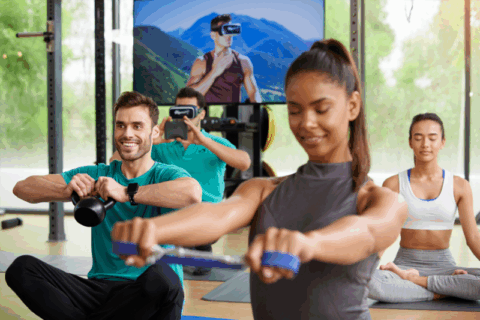
Athletes’ Mental Preparation Techniques for Major Competition Success
In the high-stakes world of competitive sports, physical prowess alone isn’t enough to secure victory. The mental game plays a crucial role in an athlete’s success, especially during major competitions where pressure reaches its peak. This article delves into the most effective mental preparation techniques athletes employ to sharpen focus, build unwavering confidence, and ultimately achieve victory on the grand stage. Discover proven strategies used by top performers and learn how these mental tactics can transform your approach to competition.
Why Mental Preparation Is Critical for Athletes
Before exploring specific techniques, it’s essential to understand why mental readiness is as vital as physical training:
- Enhanced Focus: Staying present and concentrating during critical moments can be the difference between winning and losing.
- Stress Management: Handling nerves and anxiety prevents performance decline under pressure.
- Resilience Building: Overcoming setbacks and maintaining motivation are key to enduring the demands of major competitions.
- Confidence Boosting: A positive mental attitude fosters belief in one’s abilities, fueling peak performance.
Core Mental Preparation Techniques for Major Competition Success
Athletes prepare their minds as thoroughly as their bodies. Here are some proven mental strategies to maximize performance:
1. Visualization and Mental Rehearsal
What it is: Athletes vividly imagine themselves executing perfect performance—think of it as mental simulation.
How it helps:
- Reinforces technique and confidence
- Creates a mental blueprint for success
- Reduces anxiety through familiarity with the competition environment
Implementation tips:
- Practice daily visualization sessions, imagining every detail
- Engage all senses for realism (sight, sound, touch)
- Visualize overcoming obstacles and handling pressure effectively
2. Goal Setting and Mental Conditioning
What it is: Establishing clear, achievable goals and using affirmations to reinforce a positive mindset.
How it helps:
- Keeps motivation high
- Provides direction during training and competition
- Builds mental resilience through focused aim
Implementation tips:
- Use SMART goals (Specific, Measurable, Achievable, Relevant, Time-bound)
- Incorporate positive self-talk and affirmations
- Track progress to maintain focus and motivation
3. Mindfulness and Meditation
What it is: Techniques that develop present-moment awareness and emotional regulation.
How it helps:
- Enhances concentration
- Reduces pre-competition nerves
- Improves emotional control under pressure
Implementation tips:
- Dedicate 10-15 minutes daily to mindfulness meditation
- Practice deep breathing exercises pre-competition
- Use mindfulness routines to reset focus during events
4. Pre-Performance Routines
What it is: Consistent actions and rituals performed before competing to create a mental “priming” effect.
How it helps:
- Builds familiarity and calmness
- Signals the brain that it’s time to perform
- Reduces indecision and anxiety
Implementation tips:
- Develop specific warm-up and mental checklists
- Use cues like listening to certain music or visualization
- Stick to routines even when nerves kick in
5. Developing Mental Toughness and Resilience
What it is: Cultivating the ability to stay focused and motivated through adversity.
How it helps:
- Overcomes setbacks or mistakes during competition
- Maintains performance under immense pressure
- Builds long-term confidence and grit
Implementation tips:
- Embrace challenges as growth opportunities
- Practice stress inoculation training
- Reflect on past successes and setbacks to learn resilience
Combining Techniques for Maximum Impact
Integrating multiple mental strategies creates a powerful mental armor:
| Technique | Actionable Tip | Result |
| Visualization + Goal-setting | Visualize achieving your goals daily | Reinforces motivation and confidence |
| Mindfulness + Pre-performance routines | Practice mindfulness before routines to focus | Enhances concentration and calmness |
| Resilience training + Mental rehearsal | Simulate setbacks and rehearse responses | Builds resilience and quick recovery skills |
Frequently Asked Questions
How long before a major competition should athletes start mental preparation?
Ideally, mental training begins weeks to months before the event. Consistent daily practice cement these techniques, allowing the athlete to perform at peak mental capacity when it matters most.
Can mental preparation replace physical training?
No, mental techniques complement physical preparation. They are integral to a holistic approach that ensures overall readiness—mental and physical.
Are these techniques suitable for amateur or youth athletes?
Absolutely. These strategies can be adapted for all levels, helping athletes of all ages develop mental resilience and focus.
Final Thoughts
Success in major competitions hinges not only on physical skill but also on mental mastery. Implementing these proven mental preparation techniques—visualization, goal setting, mindfulness, pre-performance routines, and resilience training—can unlock new levels of focus, confidence, and resilience. Start integrating these strategies today and turn mental readiness into your competitive advantage.
Take action now: Begin with a simple visualization exercise each morning and watch your confidence and focus transform. The path to victory begins in your mind.


